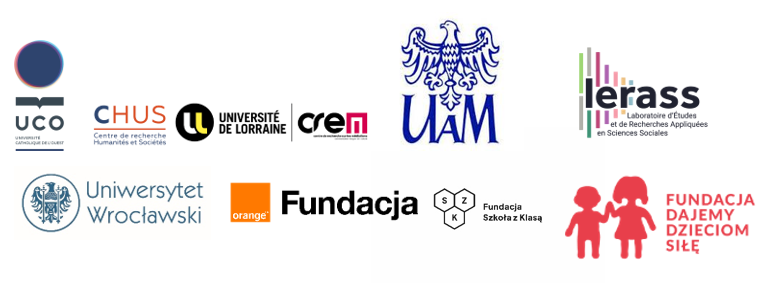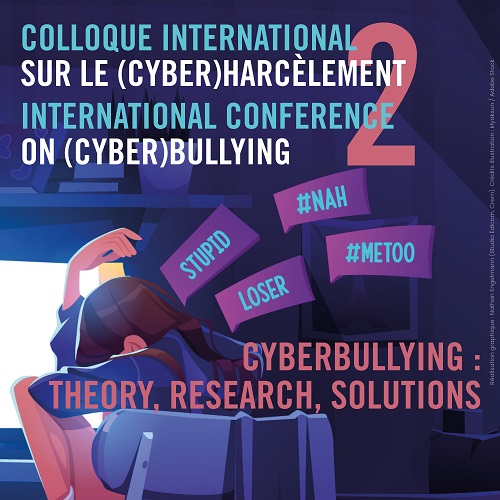CiCy 2 - Colloque international sur le (cyber)harcèlement, 2e édition - Cyberbullying : Theory, Research, Solutions,


Après une première édition qui s’est tenue à Nancy (Université de Lorraine) du 5 au 7 décembre 2022, la deuxième édition du colloque international sur le (cyber)harcèlement (CICY) se déroulera les 3 et 4 juin 2024 au sein de l’université Adam Mickiewicz située à Poznań en Pologne. Les communications, qui se feront en polonais et en anglais, permettront de continuer la réflexion sur les approches théoriques, méthodologiques et interdisciplinaires permettant d’étudier les mécanismes du phénomène et l’efficacité des outils mis en œuvre pour le combattre. Des workshops seront également organisés afin de permettre une rencontre entre chercheurs et praticiens engagés dans la prévention du harcèlement scolaire, du cyberharcèlement et des discours de haine en ligne.
The first edition of the CICY (Colloque international sur le cyberharcèlement) Conference dedicated primarily to the broad concept of cyberbullying, took place in Nancy (France) in December 2022. The conference brought together a diverse international group of researchers representing various fields of study, including psychology, education, communication, media studies, sociology, anthropology, linguistics, as well as law and criminology. The course of the conference confirmed that the issue of cyberbullying requires interdisciplinary meetings.
It is with great pleasure that we are inviting you to the second edition, organized by Polish and French academic institutions, this time in Poznań on June 3-4, 2024. We are also joined by non-governmental organizations actively engaged in cyberbullying prevention: the Orange Foundation, the School with Class Foundation, and the Empowering Children Foundation.
As conference organizers, we are guided by a unique philosophy in approaching the issue of electronic aggression in its various forms.
Firstly, we are interested in exploring electronic aggression in its diverse dimensions: peer cyberbullying, cyberbullying in the workplace, online hate speech (including towards marginalized groups and individuals as well as institutions supporting them, such as migrants, representatives of sexual, religious, or national minorities), and electronic aggression as a component of political activities, among others.
Secondly, we aim to analyze the phenomenon of electronic aggression in connection with the overall realm of people's experiences, including the face-to-face violence they encounter in their social spaces (e.g., at school or in the workplace).
Thirdly, we emphasize the importance of taking into account perspectives from representatives of various scientific fields, each providing a unique insight into the phenomenon we are interested in. We believe that creating a space for such interdisciplinary meetings helps understand, to the extent possible, the mechanisms leading to electronic aggression, its manifestations, and its consequences.
Fourthly, we strongly believe that research in this area should be applied practically for preventive and intervention efforts. Therefore, we want our conference to be a real opportunity for researchers, practitioners, as well as students in social and humanistic fields to come together.
We have designed our entire program to align with the principles outlined here. We hope that our invitation will prove to be appealing to you.
46.603354, 1.8883335


